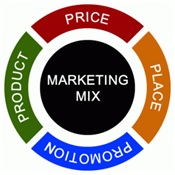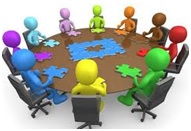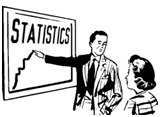|
 |
|
 |
Market research
Market research is... Collecting information about customers:
1. Who are they? (the people involved in the buying decision are called the decision making unit, DMU).
2. What/where/when are they buying?
3. Are they increasing or decreasing?
4. What do they think of our organization?
5. Have they unmet needs and wants and are we satisfying them?
6. Why do they buy from us? (see buying behaviour). Market research should be distinguished from marketing research that collects problems relating to marketing’s 4 P’s (called the marketing mix) –
How to do market research
1. Primary research This is obtaining new information from:
a) customer surveys Using questionnaires in face to face interviews or via the telephone, post, or the Internet.
b) focus groups Detailed discussions with a small group of customers.
c) customer loyalty cards (giving valuable information about customers like where they live and what they buy).
d) consumer panels (a group of customers recording their purchases in a diary).
e) field experiments (testing new marketing methods).
2. Secondary (or desk) research This uses existing customer information like:
3. Database marketing This is putting customer information on computer databases to find out what they want and where marketing communications (e.g. discount vouchers and advertising) can be sent. This allows for the selling (or targeting) of certain products to particular market segments (see market segmentation).
Key quotes explained
“Lead the public with new products rather than ask them what kind of products they want” - Akio Morita (co-founder of Sony, pictured right). Ignoring customers’ views is risky but Morita’s approach is appropriate for revolutionary new products that customers have no experience of. A classic example of this is Apple with its new products like the iPod and iPad. Apple's co-founder, Steve Jobs, said: “A lot of times, people don’t know what they want until you show it to them”. The car pioneer, Henry Ford, also questioned the value of market research. He said “If I had asked my customers what they wanted, they’d have said a faster horse”.
“The customer is always right” - Gordon Selfridge (American founder of the famous London store, pictured right) One of the world’ most successful retailers, Stew Leonard’s Diary Store in Connecticut, USA, has two rules embossed in stone in the store: “Rule 1: the customer is always right. Rule 2: if the customer is wrong, re-read rule 1”. The inventor, Thomas Edison, summed up his customer driven philosophy as: “I find out what the world needs. Then I go ahead and invent it”.
“The customer isn’t a moron. She’s your wife” - David Ogilvy (English advertising executive, pictured right). Never disparage your customers, because they are your bread and butter. “Every company’s greatest assets are its customers, because without customers there is no company”, said Michael LeBoeuf, the American management writer.
Best books
Alvin Toffler (pictured right) , Future Shock (1970) Forecasted important market changes like the
(For more detail see Future Shock in the Business Books section)
|
|
|
||
|
|
|
||
|
||
| Copyright © wisdomtowin.com All Rights Reserved | ||
|











